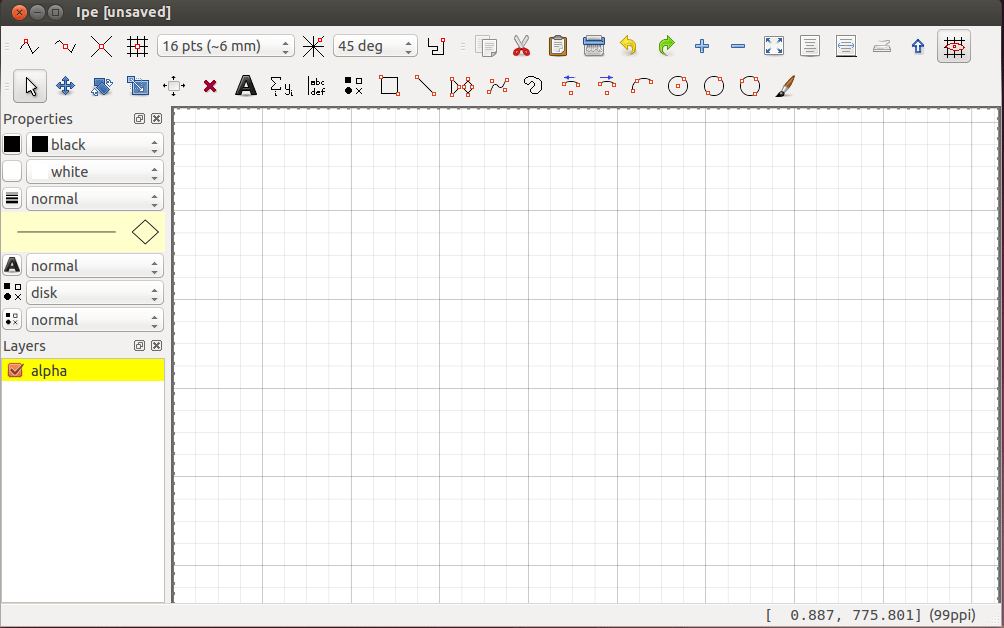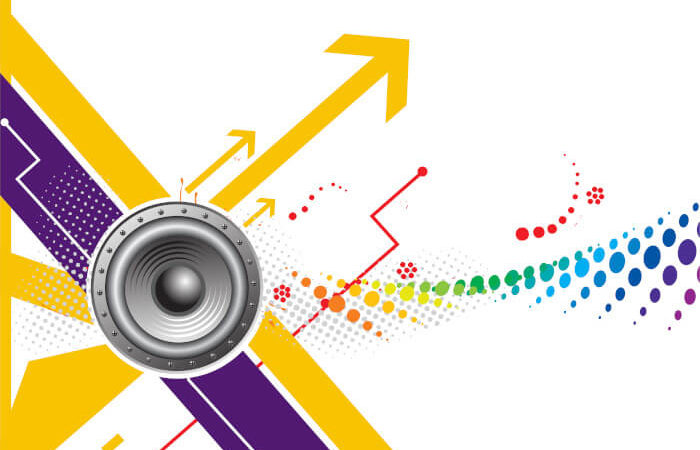Ipe is an open source drawing editor for creating figures in PDF or (encapsulated) Postscript format.
This software supports making small figures for inclusion into LaTeX (or plain TeX) documents as well as making multi-page PDF presentations. Ipe allows you to prepare and edit drawings containing a variety of basic geometry primitives like lines, splines, polygons, and circles.
Ipe also allows you to add text to your drawings, and unlike most other drawing programs, Ipe treats these text object as LaTeX text. This has the advantage that all usual LaTeX commands can be used within the drawing, which makes the inclusion of mathematical formulae (or even simple labels like “qi”) much simpler. Ipe processes LaTeX source and includes its Postscript or PDF rendering in the figure. Additionally, Ipe offers you some editing functions that can usually only be found in professional drawing programs or CAD systems.
Ipe is written in standard C++ and Lua 5.2.
Features include:
- Entry of text as LaTeX source code. This makes it easy to enter mathematical expressions, and to reuse the LaTeX-macros of the main document. In the display text is displayed as it will appear in the figure.
- Produces pure Postscript/PDF, including the text. Ipe converts the LaTeX-source to PDF or Postscript when the file is saved.
- Easy to align objects with respect to each other (for instance, to place a point on the intersection of two lines, or to draw a circle through three given points) using various snapping modes.
- Snapping comes in three flavors: grid snapping, context snapping, and angular snapping. The following features can be snapped to:
- Vertices.
- Boundaries (lines).
- Intersections between lines. This includes curved lines.
- A grid.
- Angles.
- Extensible – users can provide ipelets (Ipe plug-ins) to add functionality to Ipe. Once registered with Ipe by adding them to the ipelet path, users can use those functions like Ipe’s own editing functions. Plugins can be written in Lua or C++.
- Support for clipping paths, gradients, transparency and tiling patterns.
- The text model is based on Unicode.
Website: ipe.otfried.org
Support: GitHub Code Repository
Developer: Otfried Cheong
License: GNU General Public License v3.0

Ipe is written in Java. Learn Java with our recommended free books and free tutorials.
| Popular series | |
|---|---|
| The largest compilation of the best free and open source software in the universe. Each article is supplied with a legendary ratings chart helping you to make informed decisions. | |
| Hundreds of in-depth reviews offering our unbiased and expert opinion on software. We offer helpful and impartial information. | |
| The Big List of Active Linux Distros is a large compilation of actively developed Linux distributions. | |
| Replace proprietary software with open source alternatives: Google, Microsoft, Apple, Adobe, IBM, Autodesk, Oracle, Atlassian, Corel, Cisco, Intuit, and SAS. | |
| Awesome Free Linux Games Tools showcases a series of tools that making gaming on Linux a more pleasurable experience. This is a new series. | |
| Machine Learning explores practical applications of machine learning and deep learning from a Linux perspective. We've written reviews of more than 40 self-hosted apps. All are free and open source. | |
| New to Linux? Read our Linux for Starters series. We start right at the basics and teach you everything you need to know to get started with Linux. | |
| Alternatives to popular CLI tools showcases essential tools that are modern replacements for core Linux utilities. | |
| Essential Linux system tools focuses on small, indispensable utilities, useful for system administrators as well as regular users. | |
| Linux utilities to maximise your productivity. Small, indispensable tools, useful for anyone running a Linux machine. | |
| Surveys popular streaming services from a Linux perspective: Amazon Music Unlimited, Myuzi, Spotify, Deezer, Tidal. | |
| Saving Money with Linux looks at how you can reduce your energy bills running Linux. | |
| Home computers became commonplace in the 1980s. Emulate home computers including the Commodore 64, Amiga, Atari ST, ZX81, Amstrad CPC, and ZX Spectrum. | |
| Now and Then examines how promising open source software fared over the years. It can be a bumpy ride. | |
| Linux at Home looks at a range of home activities where Linux can play its part, making the most of our time at home, keeping active and engaged. | |
| Linux Candy reveals the lighter side of Linux. Have some fun and escape from the daily drudgery. | |
| Getting Started with Docker helps you master Docker, a set of platform as a service products that delivers software in packages called containers. | |
| Best Free Android Apps. We showcase free Android apps that are definitely worth downloading. There's a strict eligibility criteria for inclusion in this series. | |
| These best free books accelerate your learning of every programming language. Learn a new language today! | |
| These free tutorials offer the perfect tonic to our free programming books series. | |
| Linux Around The World showcases usergroups that are relevant to Linux enthusiasts. Great ways to meet up with fellow enthusiasts. | |
| Stars and Stripes is an occasional series looking at the impact of Linux in the USA. | |
